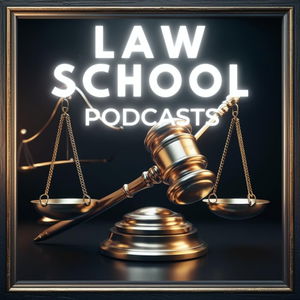Main Themes and Important Ideas:
1. Definition and Core Principle:
Sovereign immunity is a legal doctrine stating that the state (or sovereign) cannot be sued without its consent.
It is rooted in the historical maxim "the king can do no wrong," reflecting the idea of the sovereign's immunity from legal liability in their own courts.
The doctrine has evolved from its absolute form to a more nuanced concept in modern legal systems.
Quote: "Sovereign immunity is a legal doctrine that essentially holds that the state—or, more generally, the sovereign—cannot be sued without its consent."
2. Historical Origins:
The doctrine originates in the English common law system, where the monarch was seen as the personification of the state and immune from suit.
This foundational belief has significantly influenced the development of state immunity in many jurisdictions.
The evolution of democratic governments has led to a re-examination and limitation of the absolute form of sovereign immunity.
Quote: "Historically, the monarch was seen as the personification of the state, and because it was considered improper to subject the sovereign to the ordinary legal process, no one could sue him."
3. Doctrinal Foundations:
The doctrine operates on two central principles: non-liability (the government is immune unless it waives immunity) and consent (the government can choose to be subject to its legal system).
Governmental accountability in modern society necessitates the possibility of voluntary waiver of immunity.
Quote: "At its heart, the doctrine operates on two central principles: the idea of non-liability and the concept of consent."
4. Constitutional Underpinnings (U.S. Context):
The U.S. Constitution, particularly the Eleventh Amendment, plays a pivotal role.
The Eleventh Amendment generally prevents citizens from suing a state in federal court without the state's consent, overruling Chisholm v. Georgia.
The Supreme Court has broadly interpreted the Eleventh Amendment to reinforce state sovereign immunity.
This immunity is not absolute; exceptions exist where states consent or Congress validly abrogates immunity.
Quote: "Ratified in the wake of the landmark case of Chisholm v. Georgia, the Eleventh Amendment essentially overruled the ability of citizens to sue a state in federal court without the state's consent."
5. Key Case Law:
Cases like Hans v. Louisiana reaffirmed state immunity from suits in federal court by citizens of another state or foreign citizens without consent.
Case law has refined the understanding of valid waivers, what constitutes "consent," and how to balance immunity with individual rights.
These cases highlight the dynamic tension between immunity and accountability.
6. Practical Implications in Litigation:
Understanding sovereign immunity is paramount for attorneys involved in lawsuits against the government.
It can act as a shield for governmental entities, protecting them from disruptive or resource-straining claims.
It can also leave injured parties without a remedy.
The first step for a plaintiff is often determining if immunity applies and whether it has been waived.
Quote: "For attorneys practicing in this field, understanding sovereign immunity is paramount because it affects the strategies employed in bringing or defending lawsuits against the government."
7. Waiver of Sovereign Immunity:
Governments can consent to be sued through waiver, which can be express (e.g., in statutes like tort claims acts or contracts) or implied (e.g., through commercial activity).
When a government operates in the marketplace like a private entity, courts may find an implied waiver.
Understanding the nuances of waiver is crucial for determining the viability of a lawsuit against the government.
Quote: "Waiver is the mechanism by which a government entity consents to be sued, effectively setting aside its sovereign immunity. This can occur either expressly or impliedly."
8. Debates on Scope and Fairness:
Proponents argue immunity is e

